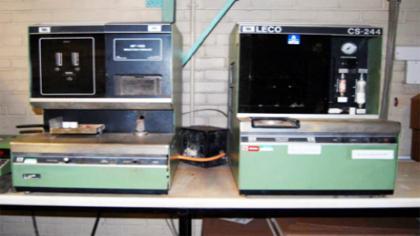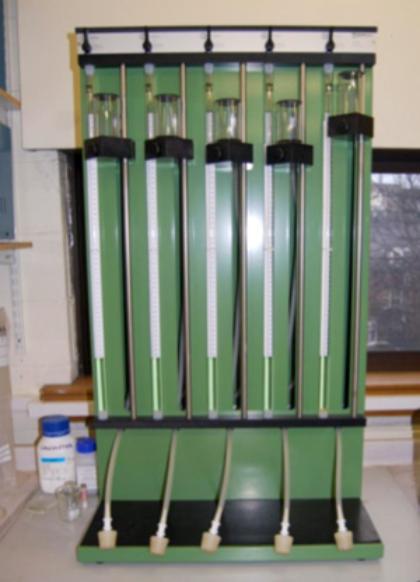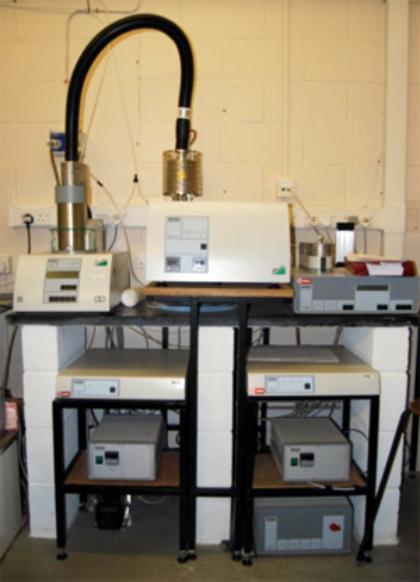
Equipment

Above: A Leco CS244 Carbon/Sulphur carbon analyser is routinely used for bulk organic carbon determination. Combustion analysis is a well-accepted standard technique for the determination of the amount of carbon and sulfur in many materials including steel, cast iron, copper, alloys, ores, cement, ceramics, minerals, and carbides. Our LECO CS-244 is a simultaneous carbon/sulfur determinator based on the combustion-infrared absorption method. The sample is combusted in oxygen that converts the carbon in the sample to CO2. The carbon is then determined by infrared absorption.
Right: Acid digestion and volumetric measurement of evolved CO2 in a calcimeter is a robust method for determining inorganic carbon content of soils (Reproducibility better than 0.6 % as CaCO3). The quantity of sample needed is determined beforehand by treating a part of the sample with hydrochloric acid on a watch glass. The carbonate content is estimated on the basis of the extent and the period of bubbling. Based on this estimate the quantity of sample for the analysis is determined.


Left: We have developed a novel system of thermogravimetric - differential scanning calometry with evolved gas quadrupole mass spectrometry to simultaneously determine labile, refractory and recalcitrant compounds of organic carbon and inorganic carbon.




